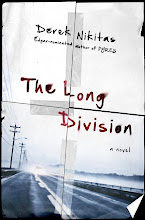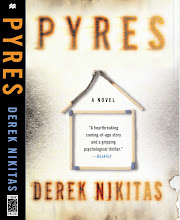We said a few hurried words about Mr. Poe’s review of Mr. Hawthore’s Twice Told Tales in a recent blog, with a design of speaking more fully in the present. It is also with a certain grim amusement we note that Mr. Poe’s observations about Mr. Hawthorne’s volume of stories are now read much more frequently by students of fiction writing than Mr. Hawthorne’s tales themselves. Be that as it may, we are also endlessly amused by Mr. Poe, not only, as usual, for his literary style, but also for his disconcerting evocation of the first person plural, which techniques we are obviously currently adopting.
We’re impressed by Mr. Poe’s droll attitude, and we chuckle to ourselves when we observe that he devotes a full quarter of his article space toward the purpose of complaining that he does not have enough article space in which to praise Mr. Hawthorne. Another quarter of his article is rather humorously and playfully devoted to accusing Mr. Hawthorne of plagiarizing an earlier work of Mr. Poe’s own fiction. Of course, he is only being facetious. Mr. Poe, you many recall, is an historically renowned rascal.
Yet another quarter of Mr. Poe’s review is occupied with a splendid effort to praise Mr. Hawthorne’s originality and imagination, though, by a stroke of uncharacteristic difficulty, Mr. Poe cannot seem to find any but the most abstract and thematically repetitive words with which to compose his praise. No matter, for we have at the least learned that the mark of highest quality for the prose tale, which is itself inferior to the poem, is that it maintains a single effect throughout. This is one of Mr. Poe’s most famous pronouncements, though he has certainly allowed himself the luxury of a multitude of potential interpretations by posterity.
What, we might ask, is a “single effect?” We are fairly certain that our answer will pertain to what Mr. Poe terms “unity of effect or impression,” by which he might well mean that an excellent specimen of a story will maintain the same mood, perhaps the same setting and dramatic incident, without peripheral accoutrements. We know for certain at least that Mr. Poe would not like to see a work of imaginative prose carry on beyond what can be read in a single sitting, lest the reader be broken away from the story’s effect.
We understand Mr. Poe’s position and recognize its merits, but our observations regarding what is known as, for lack of a better term, the “contemporary literary landscape” do not apparently coincide with Mr. Poe’s somewhat dated argument. In fact, the literary form he provides with the lowliest designation, the novel, now rules the aforementioned contemporary landscape (not withstanding recent examples of literary self-help, celebrity confessionals, and harrowing personal memoirs regarding drug addiction). Whatever intense power the prose tale seems to have held over the readership of Poe’s day appears to have eroded in favor of longer works, at least in regards to the taste of the general pubic. Curious, indeed.
(Par parenthese, an even more curious phenomenon is the seemingly concerted effort among young, novice, male American writers of a certain temperament and in their early apprenticeships to adopt with abandon Mr. Poe’s signature writing style, and, furthermore, many of his most famous and most morbid situational motifs. The present writers are of course not excepted from this charge, and they humbly admit their own culpability in this odd literary conspiracy begun a century and a half prior to our own time at the first by Mr. Hawthorne in his ill-considered act of plagiarism.)
We wonder, at any rate, and with all due respect, if Mr. Poe’s logic were perhaps inaccurate in regards to novels. Perhaps, we would like to suggest, a range of effects carried out over a narrative emboldened by several, yet complimentary, thematic threads might in fact provide the reader with an experience as equally fulfilling as that evoked by the unified prose tale. We might also wonder whether or not a reader of sufficient breeding and education might successfully maintain his emotional investment with a work of imaginary literature even when that investment is occasionally and necessarily interrupted by periods of repose, refreshment and occupation.
It is without reservation that we reiterate our debt of gratitude to Mr. Poe for the literary riches which he has bestowed upon us, not to mention the recent, humbling accolades that he has (posthumously) bestowed upon the editors of this very edition. Therefore, we advance all of our remarks with the utmost respect, though perhaps in the admittedly faulty spirit of mere frivolous inquiry. We wonder, for instance, whether we might as contemporary writers take heed of Mr. Poe’s advice to “not fashion [our] thoughts to accommodate [our] incidents” but to first conceive of an effect and only later to “combine such events as may best aid [us] in establishing this preconceived effect.” Yet, alas, we are ill-mannered practitioners and we lack a full and reasoned understanding of the meaning behind the term “effect;” furthermore, because we suspect that Mr. Poe might be referring to an “idea” or a “point” when he employs the word “effect,” we must regrettably admit our lack of palatable “ideas” and also our inability to develop the logical acumen required for those who mean to make “points.”
Nonetheless, we join together in championing Mr. Poe in his effort to illustrate that the best prose tales are engaged in the act of uncovering truth. This we believe in unison, and with the very core of each of our beings, though when pressed upon to provide the definition of truth we are shamefully incapable. We always, as they say, “know it when we see it.” We have also a few ephemeral assumptions about what Mr. Poe means when he suggests that poetic rhythm and documentary truth do not coincide, but in light of our fulfilling friendships with various contemporary poets, not to mention our own experiences with noticing exemplary depictions of “truth” in published examples of the poetic arts, rhythmic or otherwise, we find ourselves unwilling to address this issue at the current time.
![]()



No comments:
Post a Comment